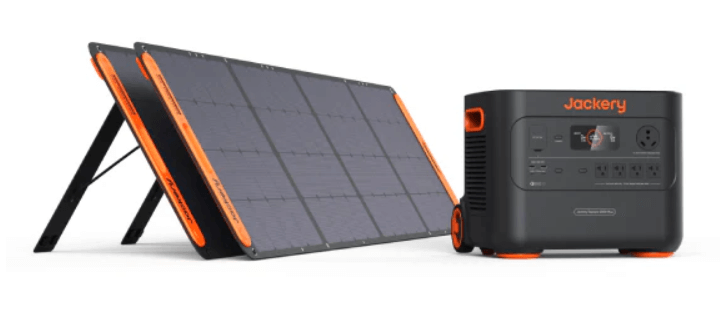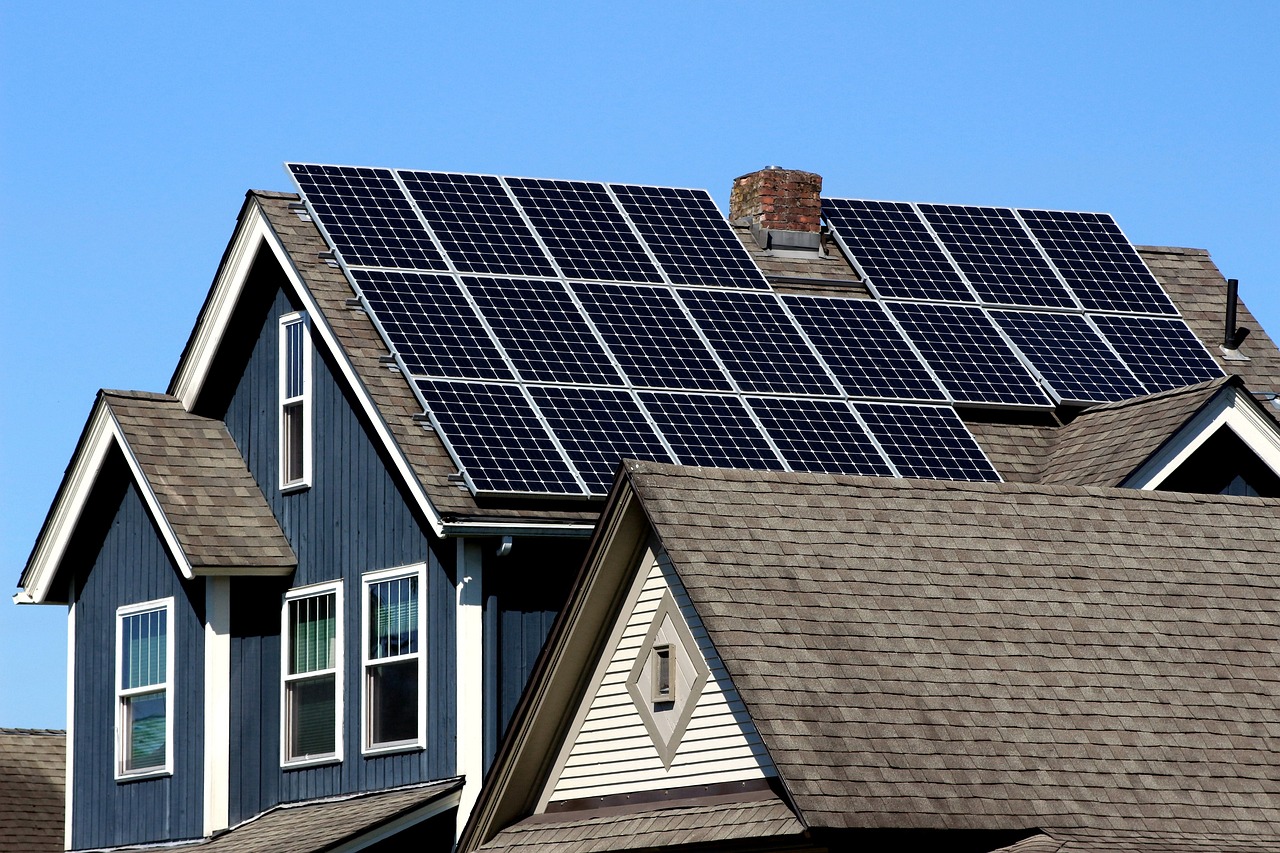Solar panels have revolutionized how we harness clean energy from the sun, but many people wonder “can solar panels store energy” or “can solar energy be stored”? The short answer is that while solar panels themselves don’t store energy, they can be paired with various storage solutions to retain solar power for later use. In this comprehensive guide, we’ll explore how solar energy storage works and the best ways to store solar power for your home or business.
How Do Solar Panels Store Energy? Understanding the Basics
To understand solar energy storage, it’s important to first clarify that solar panels themselves don’t store energy – they generate electricity from sunlight through photovoltaic cells. This solar power can then be stored using various methods, with battery storage being the most common solution for residential and commercial applications.
The Solar Energy Storage Process (link)
- Solar panels capture sunlight and convert it to direct current (DC) electricity
- The energy flow can either power your home immediately or be directed to a storage system
- Storage systems convert and retain the power until needed
- When energy is needed, the stored power is converted back to usable electricity
Where is Solar Energy Stored? Popular Storage Solutions
Battery Storage Systems
The most common way to store solar energy is through battery storage. Several types of solar batteries are available:
Lithium-ion Batteries
- Highest efficiency rates
- Longer lifespan (5-15 years)
- Minimal maintenance required
- Ideal for residential solar panel systems
- Compact design for easy installation

You can read our recommended solar power generators. Most of the recommended solar power generator are equipped with LiFePo4 batteries.
Lead-acid Batteries
- Traditional storage solution
- More affordable initial cost
- Shorter lifespan (3-5 years)
- Regular maintenance needed
- Suitable for backup power systems
Thermal Energy Storage
Another method for how solar energy is stored involves thermal storage systems:
- Uses insulated tanks to store heat
- Converts solar energy to thermal energy
- Ideal for heating applications
- Can provide hot water and space heating
- Cost-effective for certain applications
How Can You Store Solar Energy Effectively?
To maximize your solar energy storage system’s efficiency, consider these key factors:
Storage Capacity Planning
- Assess your average daily energy consumption
- Calculate peak power requirements
- Consider seasonal variations in solar production
- Plan for backup power during outages
- Account for future energy needs
Integration with Your Solar Panel System
- Ensure compatible system components
- Install appropriate inverters
- Implement smart energy management systems
- Monitor energy flow and usage
- Optimize storage capacity
Benefits of Storing Solar Energy
Solar energy storage is revolutionizing the renewable energy landscape, offering numerous advantages for homeowners and businesses alike. From reducing reliance on the grid to providing power during outages, stored solar energy is becoming an increasingly attractive option. This article explores the key benefits of incorporating solar storage systems into your energy setup.
Energy Independence
Reduced Grid Reliance
By storing solar energy in batteries, you can significantly decrease your dependence on the utility grid. When your panels generate excess power during sunny days, this stored energy can power your home instead of drawing electricity from the grid.
Protection During Power Outages
Solar storage systems act as backup power during blackouts or grid failures. Unlike standard solar panels that shut off during outages, stored solar energy keeps essential appliances running, ensuring your home maintains power when you need it most.
Consistent Energy Supply
Storage systems ensure reliable power 24/7, even when solar panels aren’t actively producing electricity. This means you have steady access to power during nighttime, cloudy days, or winter months with less sunlight.
Greater Control Over Energy Usage
With solar storage, you gain the ability to manage when and how you use your power. You can choose to use stored energy during peak rate periods, monitor your consumption patterns, and optimize your energy usage for maximum efficiency.
Enhanced Energy Security
Having your own energy reserve protects you from grid problems, rate increases, and power quality issues. This independence ensures critical systems stay operational and shields you from utility-related uncertainties.
Financial Advantages
Installing solar panels with an energy storage system offers significant financial benefits. A solar energy storage system allows homeowners to store energy for later use, reducing reliance on the grid during peak energy demand hours. Solar battery storage enables you to maximize your solar generation by capturing excess energy that would otherwise be lost.
Home solar systems with solar power storage can help decrease electricity bills through net energy metering. When the sun isn’t shining, stored energy can be used, reducing the need for grid power. Solar batteries can help homeowners achieve greater energy independence and potentially earn money by selling excess solar back to the grid.
Environmental Impact
Solar batteries can help balance energy demand and supply, enabling more efficient use of renewable resources. This energy storage technology also supports net energy metering, allowing homeowners to earn credits for excess solar power fed back into the grid.
The environmental benefits of solar energy storage are significant. By enabling users to store energy for later use, these systems reduce the need for fossil fuel-based power plants during peak hours. Thermal energy storage uses heat from the sun, further decreasing carbon emissions. Overall, being able to store solar energy contributes to a cleaner, more sustainable energy future.
Solar Energy Storage Solutions for Different Needs
Residential Applications
- Home battery systems
- Daily power management
- Backup power solutions
- Smart home integration
- Peak load shifting
Commercial Applications
- Large-scale battery storage
- Industrial power management
- Demand response programs
- Grid services participation
- Energy cost optimization
Grid-Scale Storage
- Utility-level solutions
- Renewable energy integration
- Grid stabilization
- Peak demand management
- Energy distribution optimization
Choosing the Right Solar Storage System
When deciding where to store solar energy, consider these factors:
System Requirements
- Energy consumption patterns
- Available space
- Climate conditions
- Budget constraints
- Future expansion needs
Storage Technology Selection
- Battery chemistry type
- System efficiency
- Lifespan expectations
- Maintenance requirements
- Environmental considerations
The Future of Solar Energy Storage
The solar storage industry continues to evolve with:
- Advanced battery technologies
- Improved storage efficiency
- Reduced costs
- Enhanced integration capabilities
- Innovative storage solutions
Conclusion: Can Solar Panels Store Energy?
While solar panels themselves don’t store energy, they work seamlessly with various storage systems to provide reliable, sustainable power. Whether you choose battery storage, thermal storage, or other solutions, storing solar energy is an essential component of maximizing your renewable energy investment. By understanding how solar energy is stored and selecting the right storage solution, you can optimize your solar power system’s performance and achieve greater energy independence.
Understanding how to store solar energy effectively is crucial for anyone considering a solar panel system. With continued advancements in storage technology and decreasing costs, solar energy storage is becoming increasingly accessible and efficient, making it an integral part of the clean energy future.
Remember that the best storage solution depends on your specific needs, budget, and energy goals. Consulting with solar energy professionals can help you design the optimal storage system for your application, ensuring you get the most value from your solar investment.
Read also: Best Solar Power Generators for home backup
Love to read, explore and write about Science, Mathematics and Technology.
The name “Newton” coming from how I love Science.
